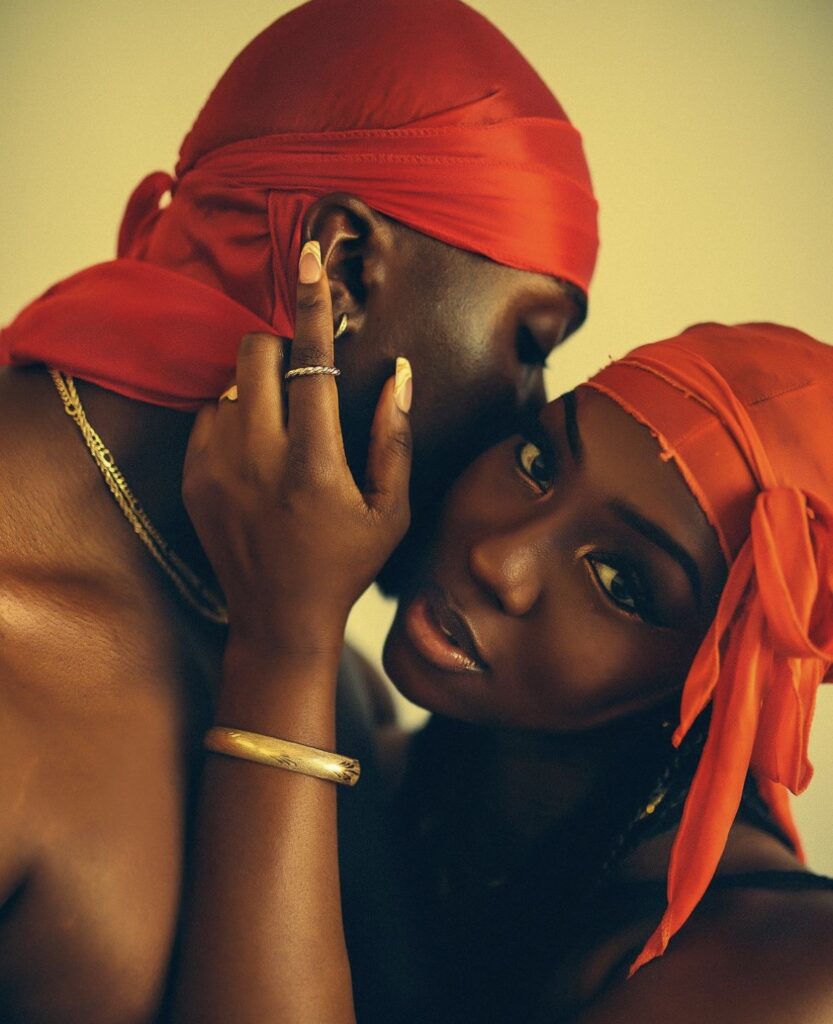
As the season of love aligns with Black History Month, it invites a reflection on how love is perceived within the Black community. Black love is like art, like a poem, capturing complex emotions and stories within each stroke and word.
It draws from the deep well of community and family history, showing that the way we experience and understand love is deeply influenced by our parents. This relationship suggests a cycle that can either be continued or broken, shaping the legacy of love for future generations to admire and emulate.
Society’s stereotypes deeply influence perceptions of Black love, shaping dating experiences for Black individuals. These biases affect relationship dynamics and how love is navigated within the community. Conversations with students on campus reveal how these societal stereotypes further shape their views on love and relationships.
The perspective of these stereotypes shared by Jennifer Deus, a political science major, shed light on the impact of societal stereotypes on the dating experiences of dark-skinned Black women. She discussed the challenge of finding warm, familiar and comforting love in a society that often perceives dark-skinned Black women through a lens of negativity, including stereotypes of anger, masculinity and hyper-sexualization. Deus voiced heartbreak over the persistence of such stereotypes and criticized the projection of insecurities by others who cannot see the beauty in their Blackness.
“I am very secure in myself, I love my skin tone so no man would ever make me feel less than, but it still hurts because I’m like … The fact that y’all still think like this does break my heart,” Deus said.
She added, “It’s just that some Black men can’t see the beauty in their Blackness, and they try to put that hatred onto me because I am confident and love my Blackness.”
An article from PubMed, “The angry Black woman: the impact of pejorative stereotypes on psychotherapy with Black women,” highlights how the “angry Black woman” stereotype negatively affects Black women’s mental health, rooted in longstanding societal beliefs. This stereotype, which has persisted for decades, unjustly confines Black women within a restrictive societal mold, overlooking their gentleness, femininity and soft-spoken qualities.
When Black women diverge from these stereotypes, they are often unfairly labeled as “weird,” “different” or “angry” for defending themselves against these stereotypes, signaling a need for society to embrace and recognize the rich diversity of Black women’s personalities and traits.
Exploring the depth of Black love, Vanessa Augustin, a senior English major at FAMU from Broward County, traces her perception of love back to her mother’s example.
“Seeing my mom love and trying to continue a love that ended a long time ago influenced me a bit” she said. “I usually gave my exes so many chances — too many — but that’s how I loved. Now I realize how important it is to leave toxicity where it is at and heal.”
This perspective is complemented by a discussion from BlackDoctor.org, which critiques the notion of “struggle love” relationships burdened by one partner’s detrimental actions. The article emphasizes the importance of recognizing and moving away from romanticizing such dynamics as Augustin did.
Augustin says that she wanted to unlearn that form of love and how important it is for her to work on it so it doesn’t repeat in the future generations. She explained how she and her boyfriend work together to communicate and love each other unconditionally. “He made me realize how to be loved and how love is soft, affectionate and intimate. People confuse intimacy with sex but intimacy to us is how deeply we love and understand each other by catering to each other’s love language” Augustin added.
The portrayal of love by our parents and the cycles we decide to either continue or break significantly shape future generations’ understanding of love. Unlearning negative stereotypes, especially those linked to Black love, is a crucial part of learning to love authentically.
According to “How Couples Therapy Can Strengthen Your Relationship” by Ari Cofer, couples therapy is an important platform for communication and reconnection. Therapy is beneficial and can help many couples have honest conversations about improving their relationships beyond the stereotypes linked to Black love. Challenging stereotypes helps everyone understand the depth and diversity of Black love, leading to richer discussions about love in the Black community.